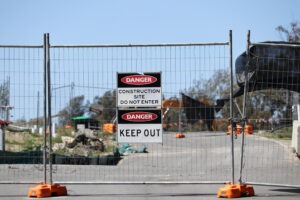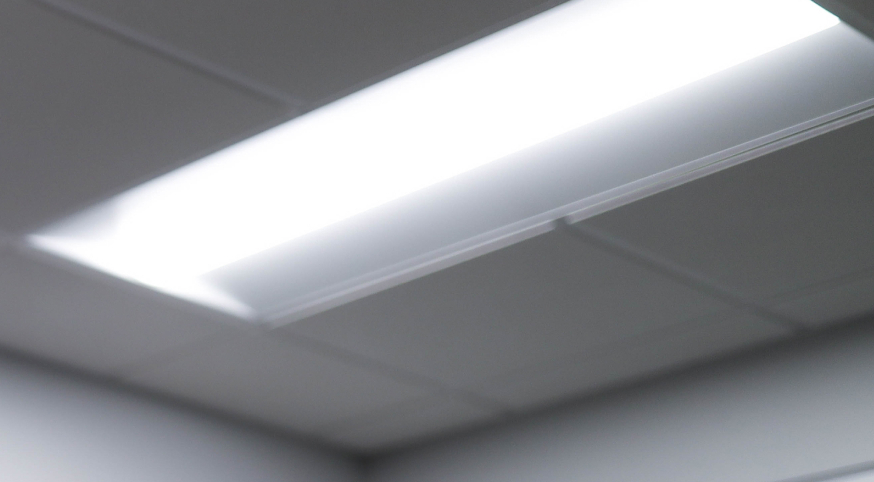
Jobs in the construction industry are very dangerous. Construction workers get injured on the job at one of the highest rates of all professions. The injuries sustained are often severe and require significant medical treatment and time off work.
If you suffered an injury on a construction site, you could be entitled to financial compensation from the liable party. A construction accident lawyer in Indiana can help, and we will fight to maximize the compensation you receive.
At Vaughan & Vaughan, our team of personal injury lawyers in Indiana has been helping accident victims recover the compensation they need for over 100 years. Learn more about how we can help so you can begin rebuilding your future.
You Must Establish Liability Before You Can Pursue Compensation
When attempting to recover compensation, one of the first things you have to do is figure out who is responsible for the construction site injuries you sustained. Unfortunately, proving fault after an accident is often a very complicated process.
However, you don’t have to attempt to establish liability on your own. An experienced Indiana construction accident lawyer will know what to look for when investigating your case to determine fault and identify the negligent parties.
Your Case Will Get
The Attention It Deserves

What an Experienced Construction Accident Attorney in Indiana Can Do for You
When you hire us to help you recover compensation, we will immediately get to work on your behalf. One of the first actions we will likely take will be to investigate your accident so we can determine who is to blame and collect evidence that supports your compensation claim.
Once we have finished the investigation, we will review your losses and evaluate the value of your personal injury claim. Next, we will likely either submit an insurance claim to the liable party’s insurance company or file a construction accident lawsuit against the at-fault party with the court.
If you have chosen to pursue litigation, we will begin the steps of the pretrial process. Once all the pretrial steps have been completed, your lawyer will represent you in court if necessary. At every step, your attorney will also be in talks with opposing counsel, working to negotiate a fair settlement.

There is no fee
unless you win
Damages You Can Claim After a Construction Accident
Following a construction site accident, we can determine what damages you are eligible to pursue. The specific details of your case will dictate what damages apply. Identifying all the damages you are entitled to claim can be challenging without the help of an experienced legal team.
Fortunately, when you hire an experienced construction site accident lawyer in Indiana, you increase your chances to recover maximum compensation. These damages are divided into four main categories. Our construction accident lawyers can calculate your damages.
Economic Damages
All of the financial losses you endured are categorized as economic damages. Because these losses are monetary, evaluating their worth is typically straightforward.
Some of the economic damages most commonly claimed include:
- Loss of income
- Diminished earning ability
- Money used to complete daily tasks that your injuries prevent you from doing yourself
- Property damage
- Medical bills
- Future medical expenses
Non-Economic Damages
The rest of your losses are grouped together in the broad category of non-economic damages. Since these intangible losses are typically personal rather than financial, putting a dollar figure on them is far more complicated.
Some of the non-economic damages most commonly claimed by injured workers include:
- Pain and suffering
- Permanent disability
- Permanent disfigurement
- Loss of consortium
- Loss of companionship
- Emotional distress
- Mental anguish
- Loss of quality of life
- Loss of enjoyment of life
Wrongful Death Damages
If you’ve lost a loved one as a result of fatal construction accident injuries, our wrongful death lawyers in Indiana can help you seek compensation for funeral expenses, the loss of your loved one’s income, and other losses.
Call Vaughan & Vaughan to learn more about filing a wrongful death lawsuit.
Punitive Damages
While economic and non-economic damages focus on the losses faced by the accident victim, punitive damages are awarded for an entirely different reason.
These damages are not assessed in relation to the accident victim but rather to the at-fault party. They are used as a means of punishment and a way of discouraging the same type of behavior in the future.
A judge will only award punitive damages in extreme cases. For these damages to apply, the liable party must have acted in a manner deemed criminally negligent or with the direct purpose of causing harm.


File Your Lawsuit Before the Deadline Passes
If you pursuing compensation, you must be mindful of the statute of limitations. Indiana generally gives accident victims two years to file a lawsuit against the at-fault party. If you fail to get your paperwork submitted within this time limit, it will most likely result in the loss of your right to pursue compensation.
Although the statute of limitations is typically quite rigid, there are a variety of exceptions that could apply to your case. If an exception does apply, it could mean that you have the right to pursue a lawsuit, even if years have passed after the standard deadline.
Alternatively, an exception to the statute of limitations lessens the time you have to submit your lawsuit. One example is in cases where the at-fault party is a government entity. In this situation, you will likely only have months to file your lawsuit against the liable party rather than the usual two years.

We Are Experienced in Construction Site Accident Claims
To give yourself the best chance of recovering the compensation you need, work with an experienced attorney. Choose a lawyer with experience handling cases similar to yours and a proven track record of successful case results.
Types of construction accident claims we handle:
- Heavy equipment accidents
- Equipment malfunctions
- Faulty equipment
- Protective equipment failures
- Lack of proper safety equipment
- Power tool accidents
- Electrical accidents
- Crane collapses
- Hazardous materials
Types of Construction Injuries We Commonly Claim
Our knowledgeable construction accident lawyers in Indiana are here to help you recover compensation for the full extent of your losses. Here are some of the most common injuries we help our clients claim compensation for:
Loss of Limb or Amputation
Severe accidents on construction sites can often lead to life-altering injuries like amputation. These types of injuries make it very difficult to continue working, depending on your occupation.
We are experienced at determining the full lifetime costs associated with amputation injuries to maximize your financial recovery.
Head Injuries
Mild to severe traumatic brain injuries are unfortunately not uncommon on construction sites and can impact cognitive ability and functioning long-term. We know how to build a case that accounts for medical costs, lost wages, impaired quality of life, and future care needs related to head injuries.
Spinal Cord Injuries
Back injuries that involve damage to the spinal cord may lead to paralysis and long-term medical care requirements. Our construction injury lawyers fight to ensure clients are fully compensated to cover wheelchairs, hospital beds, modifications to homes or vehicles, and around-the-clock nursing care if needed.
Get Your Free Case Evaluation From a Construction Accident Law Firm in Indiana Today
At Vaughan & Vaughan, our personal injury attorneys know what it takes to help injured construction workers recover fair compensation. Our team understands that you are going through a difficult time, which is why we offer compassionate legal assistance.
We represent clients throughout Indiana, including Lafayette, Indianapolis, Anderson, and Muncie. If you were hurt anywhere in Indiana, please reach out to us.
After reviewing the unique details of your case, we will determine if you have a valid construction accident injury claim. We understand the urgency of your case and we can file all your documents before the time limit. Contact us to find out more.







